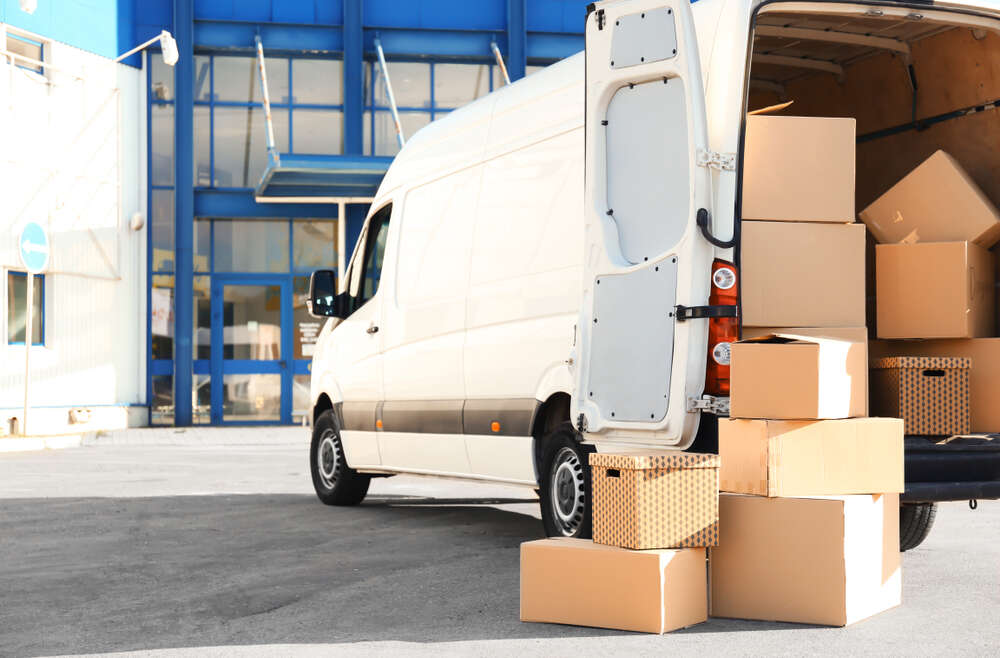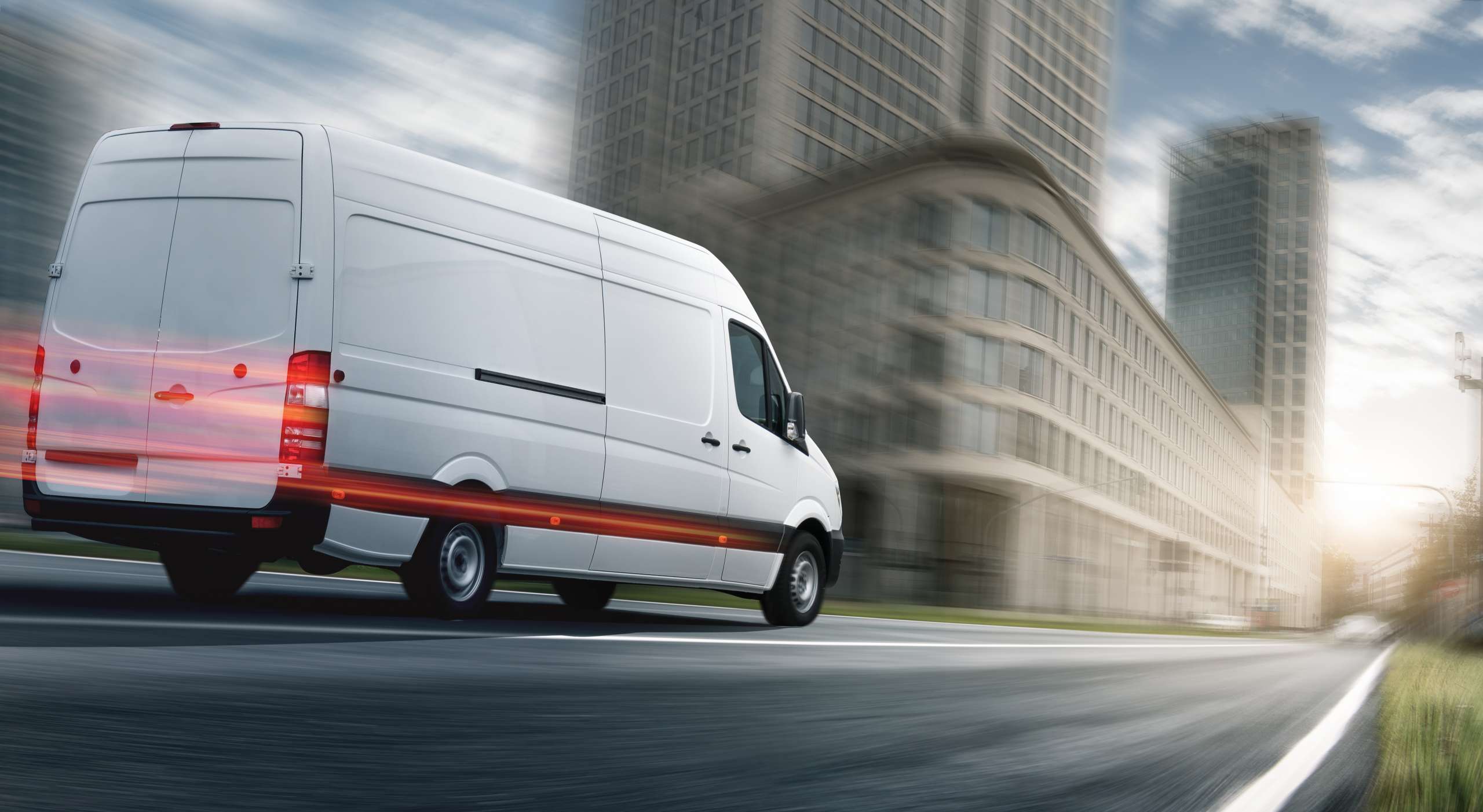Couriers provide delivery services to a range of clients including individuals, businesses and government agencies. As a courier, the dynamic and fast-paced nature of your work means that you’re exposed to a number of risks while you’re out on the road.
Selecting the right insurance for you is essential, whether you are a self employed courier or an employee of a courier business. At the same time, you want to be mindful to ensure you aren’t paying for cover you don’t need.
With this in mind, you may be wondering: what insurance do I need to be a courier, and what do I need to consider to ensure all risks are covered? Let’s take a closer look at the insurance policies which should be considered by courier drivers along with additional risk reduction strategies.
What insurance do I need to be a courier?
Motor vehicle insurance

Motor vehicle insurance is one of the most obvious forms of cover that should be in place for courier drivers. The fact that you spend a lot of time in your vehicle each day means that there is a higher risk of something going wrong. The level of motor vehicle insurance that you require will depend on your specific circumstances but it’s important to remember that third party insurance is compulsory in Australia, which covers you for personal injury you may cause another person in a car accident.
Given that you rely on your vehicle for your livelihood, an accident on the road could set you back many thousands of dollars without the correct insurance cover in place. If you’re not sure what level of vehicle insurance you require, simply speak to your broker and they can give you personalised advice.
Public liability insurance
Public liability insurance provides financial protection if you cause damage to property or injury to a third party as a result of your actions at work. As a courier, all it would take is for a third party to trip over one of your parcels or for you to accidentally damage property while carrying out a delivery to find yourself involved in an expensive claim. Public Liability Insurance is an essential form of cover for most businesses as it covers you against unforeseen accidents.
Workers compensation insurance
Workers compensation insurance is a legal requirement in Australia if you have any staff under your employ. It protects your business from workers compensation claims and associated costs if one of your workers is injured or becomes sick as a result of their work activities.
Goods in transit insurance
Goods in transit insurance covers you if items that you’re transporting from one location to another are lost, damaged or stolen. For courier drivers who are operating their own business, it’s important to keep your costs to a minimum and the last thing you want to contend with is being responsible for the costs associated should something happen to the items you’re delivering. A goods in transit insurance policy provides peace of mind for couriers, so that you know these costs would be covered.
Personal accident and illness insurance
Courier drivers rely on being mobile to allow you to carry out your work, and finding yourself suddenly unable to work due to injury or illness can mean you have no way of earning an income. Personal accident and illness insurance means that you’ll continue to receive a portion of your income if an injury or illness means that you’re unable to work. This means you can recover while also keeping up with expenses such as bills and daily living costs. For any small business owners, including courier drivers who are often self employed, personal accident and illness insurance is a particularly important consideration.
Fleet insurance
If you have multiple vans (around five or more) to insure, it may be worth looking into courier fleet insurance rather than insuring each van individually. Motor fleet insurance means you can bundle all of the vehicles in your fleet into one policy – meaning it’s easier to keep track of, you know you haven’t accidentally let any slip by, and you only have one renewal date to worry about. It’s generally the most cost-effective option for companies that have multiple vehicles to insure, and you are awarded more flexibility in the way the vehicles can be used as you can name more than one vehicle and driver on the policy.
Cost of courier van insurance
Now that you know what insurance you need to be a courier, you may be wondering how much you should expect to spend in order to secure your cover. The cost of your insurance depends on several factors, including:
- Age and experience of the driver, and if they have any previous claims or convictions.
- The level of cover taken out – Comprehensive is most expensive compared to third party or third party fire and theft, but offers more protection for you and your courier business, as well as others on the road.
- Selected excess – agreeing to a higher excess will reduce your insurance premiums.
- Where the vehicle is parked overnight.
- The radius in which you make deliveries.
- The model and age of the vehicle.
There are some steps you can take to reduce your premiums, but you want to ensure you are not compromising on cover. If in doubt, speak to your GSK Insurance Broker for tips on getting the best premium for the cover you need.
Risk reduction tips for courier drivers
Courier drivers face a wide range of risks and it’s important that both you and your employees are aware of the best working practices to ensure you stay safe. Just some of the risk reduction strategies you should consider include:
- Keep a detailed list of deliveries, including times and addresses, so your business knows where employees are at all times.
- Avoid carrying cash and other valuable items in the vehicle.
- Have a mobile phone with you at all times and consider investing in in-car surveillance to monitor activity.
- Bring a torch with you at night to ensure you can navigate dark locations, and try to arrange deliveries for daylight hours where possible.
- Avoid parking in poorly lit or isolated areas and park as close to the delivery site as possible.
- Ensure you have a system in place where you communicate to colleagues when you arrive and leave a destination.
- Always deliver to the front entrance of a building and avoid going into back entrances or side doors.
- Have a first aid kit available in every vehicle in the case of injury.
- Provide training to employees to ensure that they’re aware of all safety precautions they should take when out on a job.
Self employed vs employed couriers
Self employed couriers have the flexibility of working for themselves. They are usually contracted by businesses to pick up or deliver goods, and invoice the business for their services. Self employed couriers effectively run their own business – this means they are in charge of all their finances, both ingoing and outgoing, and any unforeseen expenses fall to them. As a self employed courier, it’s vital that you have the correct cover in place should something go wrong.
Employed couriers work for a company, who they receive their wages or salary from. Courier’s insurance is just as important for larger courier companies, but is more likely to be taken care of by the higher-ups in the company than the couriers themselves. You must ensure all employees have received proper training to mitigate the risks of potential accidents or incidents.
FAQs
Is courier insurance compulsory in Australia?
Yes. Third party motor vehicle insurance is compulsory in Australia, and if you employ staff, workers compensation is a legal requirement. Speak to your GSK Insurance Broker to ensure you have met all the legal requirements for insurance as a courier.
Is courier insurance the same as haulage insurance?
No. For long-haul deliveries in larger vehicles or trucks with bigger consignments, you will need to look at transport insurance policies. Courier’s insurance covers work such as dropping off and picking up individual items from multiple locations, such as letters, packages or parcels. It does not cover all forms of trucking or transport work.
Here at GSK Insurance Brokers, we offer personalised insurance solutions for your courier insurance business in Australia so you can be confident that you’re protected financially. We understand that you face a unique set of risks as a courier and our brokers have the knowledge and experience to offer customised insurance packages to meet the needs of your growing business.
For more information about courier driver’s insurance and for all your insurance needs, contact GSK Insurance Brokers today.


